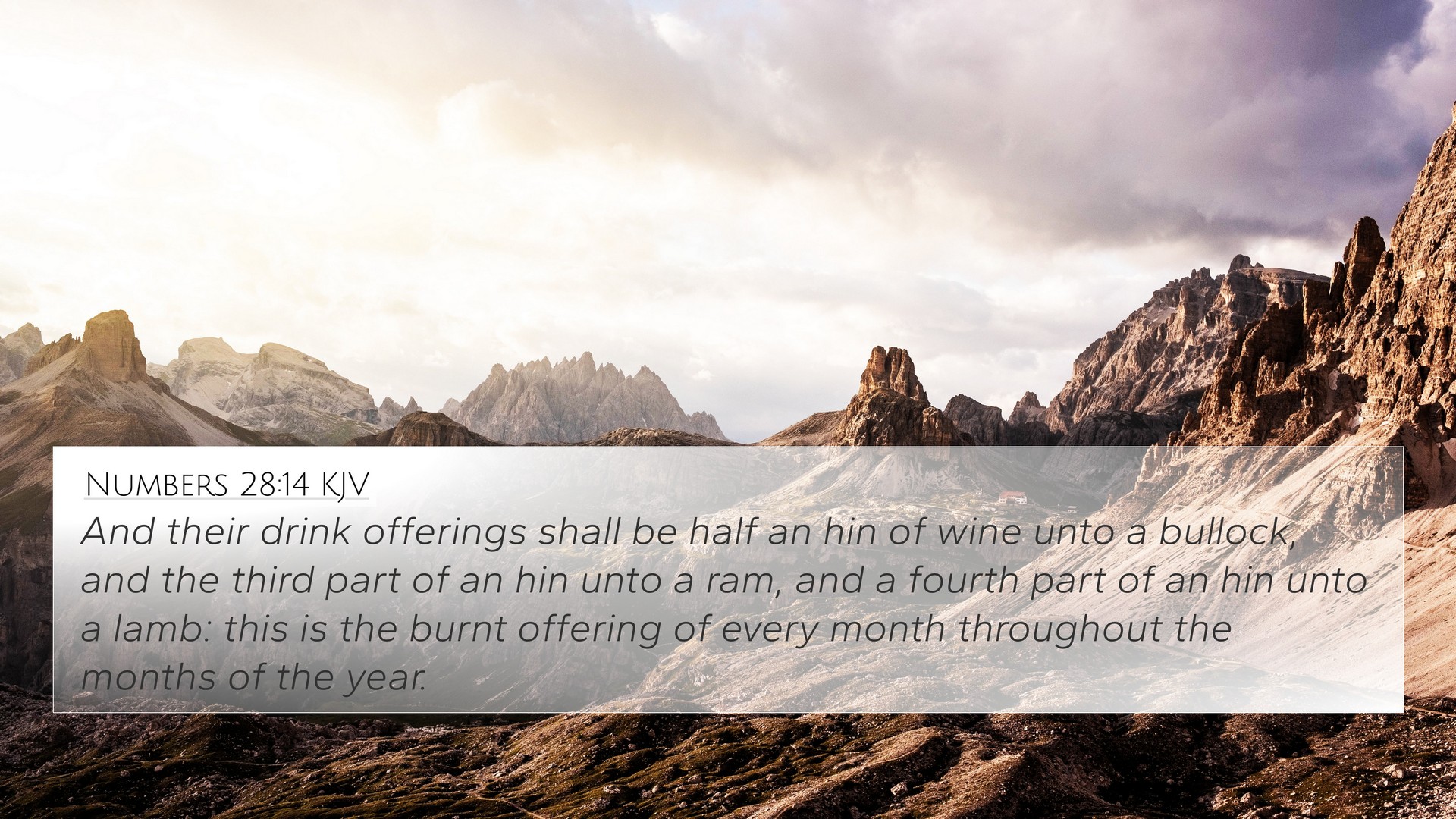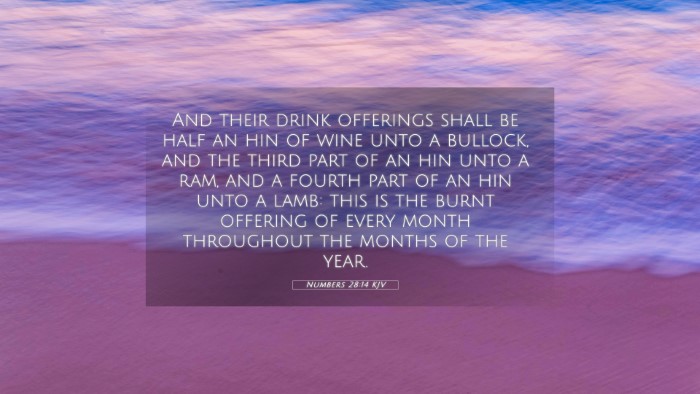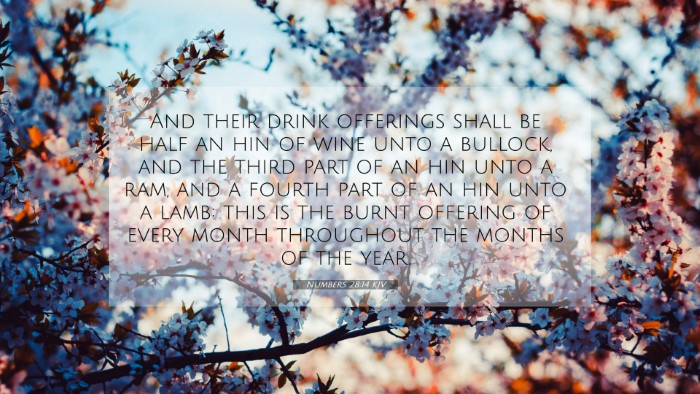Understanding Numbers 28:14
The passage from Numbers 28:14 reads:
"And their drink offerings shall be half a hin of wine unto a bullock, and the third part of a hin unto a ram, and a fourth part of a hin unto a lamb: this is the burnt offering of every month throughout the months of the year."
Summary of Context and Meaning
This verse is part of God's instructions to Moses regarding the offerings to be made for the people of Israel. The detailed guidelines for burnt offerings reflect the importance of worship and covenant relationship with God.
Key Themes in Numbers 28:14
- Importance of Offerings: This highlights God's expectation of sacrifice and offerings as a means of worship.
- Regular Worship: The mention of monthly offerings signifies the need for continual devotion and remembrance of God.
- Divine Ordination: The specifics about the drink offerings showcase the divine nature of worship—everything is designed by God.
- Covenantal Relationship: This reinforces Israel's obligations under the covenant established with God.
Public Domain Commentary Insights
According to Matthew Henry, the verse emphasizes the meticulous detail with which the Lord requires His people to observe their religious duties. He notes that the offerings were not just to appease God, but to uphold a relationship characterized by gratitude and reverence.
Albert Barnes highlights that the inclusion of specific quantities for the drink offerings reminds believers of the seriousness and precision involved in worship. He elaborates that these guidelines were meant to foster a sense of communal identity among the Israelites as people set apart for God's service.
Adam Clarke adds that these rituals were designed to instill in the people an understanding of the cost of relationship with God. He emphasizes that genuine worship is sacrificial and intentional, requiring both physical and spiritual investment.
Bible Verse Cross-References
Understanding Numbers 28:14 can be enriched by exploring related biblical texts. Here are some significant cross-references:
- Leviticus 23:37: Discusses the holy convocations and offerings associated with appointed feasts.
- Exodus 29:38-42: Outlines the continual offerings to be made, reflecting a pattern of worship that persists through generations.
- Hebrews 9:22: States that without the shedding of blood there is no remission of sins, linking Old Testament sacrifices to New Testament insights.
- Psalm 51:17: Explains that God desires a broken spirit as much as physical offerings, showing the importance of the heart in worship.
- Romans 12:1: Encourages believers to present their bodies as living sacrifices, connecting the Old Testament sacrificial system to New Testament theology.
- Malachi 1:11: Addresses the nature of offerings and the attitude with which they should be given to God, fitting in with the themes of devotion.
- 1 Peter 2:5: Speaks of believers as living stones being built into a spiritual house, highlighting the continuity of worship practices through Christ.
Connections Between Bible Verses
By examining these supporting scriptures, we observe:
- How the themes of sacrifice and worship thread through both the Old and New Testaments.
- The necessity of sincerity in worship as emphasized across various texts.
- The ongoing dialogue between God's expectations and human offerings.
- How Israel's practices foreshadow the ultimate sacrifice of Christ.
Thematic Bible Verse Connections
This verse can be applied in a broader theological context:
- The Nature of Sacrifice: Connections with Romans 12:1 highlight continued relevance in the life of a believer.
- God’s Holiness and Worship: Reflects the theme of holiness found in Leviticus and echoed in Hebrews.
- Community and Identity: The communal aspect of these sacrifices binds the people together in a shared identity in Christ.
Comparative Bible Verse Analysis
Comparing this verse with others reinforces the notion that the practice of offerings serves as a method for aligning oneself with God's will:
- Instruments of worship in Numbers contrasted with the spiritual sacrifices in 1 Peter.
- The repeated nature of these offerings serves as a reminder of God's ongoing commitment to His covenant.
- The focus on monthly offerings encourages regular returns to God, informing personal devotion habits of modern believers.
Conclusion
Numbers 28:14 serves as a reminder of the significant role that offerings play in the life of a believer. The cross-references and thematic connections illuminate the relationship between ancient practices and contemporary faith. By exploring these connections and insights, believers can better understand the importance of worship in their spiritual journey.
Tools for Bible Cross-Referencing
Effective Bible study can be supported through various tools such as:
- Bible concordances for understanding word meanings and themes.
- Cross-reference guides for examining parallels and connections.
- Comprehensive materials that compile cross-references across texts.


